Female Sexual Dysfunction: Everything You Need to Know

Female Sexual Dysfunction: Everything You Need to Know
Are you experiencing persistent, recurring problems with your ability to become aroused, have an orgasm and enjoy sex without pain? It may be the signs of a medical condition called sexual dysfunction.
Sexual dysfunction affects approximately 30 to 40% of women. It can prevent pleasure during any phase of the sexual response cycle (desire, arousal, orgasm, resolution). A lack of sexual desire is the most common complaint in females with sexual dysfunction. The condition may be temporary or chronic, i.e., long-lasting.
Let’s delve deeper and learn more about the symptoms, causes, diagnosis, and treatment of female sexual dysfunction.
What Symptoms Indicate Female Sexual Dysfunction?
The symptoms of female sexual dysfunction depend on its type:-
- Hypoactive sexual desire disorder is one of the most common female sexual dysfunction that involves a lack of sexual interest or willingness to have sex.
- Sexual arousal disorder is characterised by difficulty in becoming aroused or maintaining arousal during sexual activity.
- Anorgasmia (orgasmic disorder) is characterised by persistent and recurrent difficulty in having an orgasm after sexual arousal and adequate sexual stimulation.
- Dyspareunia (sexual pain disorder) includes persistent and recurrent genital pain before, during, or after having sex.
What Causes Female Sexual Dysfunction?
The causes of female sexual dysfunction are divided into physical and psychological. The physical causes include:-
- Blood flow disorders: The vagina, labia, and clitoris need an increased blood flow for women to experience sexual arousal. However, vascular or blood vessel disorders can prevent blood flow to the female reproductive system.
- Particular health conditions: Sexual dysfunction in women can be due to several health conditions, such as diabetes, multiple sclerosis, arthritis, and heart disease. Alcohol abuse and drug addiction can also affect the ability to enjoy sex.
- Hormonal changes: A decrease in estrogen levels after menopause can result in a decreased blood flow to the pelvic region, causing a less genital sensation and more time to build arousal and reach orgasm. A change in hormonal levels after giving birth or during breastfeeding can cause vaginal dryness or atrophy, leading to painful sex.
- Certain medications: Medications such as antidepressants, antihistamines, blood pressure medications, and chemotherapy can reduce sexual desire and your body’s ability to reach orgasm.
- Gynecologic conditions: Uterine fibroids, ovarian cysts, endometriosis, and vaginitis can result in pain during sex. Other conditions such as vaginismus (which causes vaginal muscle spasms) can also result in uncomfortable sexual intercourse.
Psychological causes of female sexual dysfunction include:-
- Anxiety or Depression: It can cause a lack of interest in your previously enjoyed activities, including sex.
- Stress: It can increase cortisol hormone levels, resulting in a low sex drive. Long-term stress arising from home or work can make it difficult to enjoy sex. The worries of pregnancy may also have similar effects.
- History of physical or sexual abuse: Past sexual abuse can cause anxiety and a fear of intimacy, making it difficult to have intercourse.
- Relationship issues: Some women might be unhappy in their relationships or feel bored during sex, leading to sexual dysfunction.
Is Female Sexual Dysfunction a Permanent Condition?
Sexual dysfunction might occur at certain times, like after childbirth and can go away on its own for some women. However, for others, it may need ongoing treatment. It requires the attention of different healthcare professionals, including counsellors and physical therapists.
Can You Prevent Female Sexual Dysfunction?
There isn’t a single way by which you can prevent female sexual dysfunction. However, you can reduce your risk of sexual dysfunction by:-
- Exercising regularly
- Eating a healthy balanced diet
- Maintaining a healthy weight
- Avoiding drugs and alcohol
- Seeking professional help if you experience trouble with your mood
How is Female Sexual Dysfunction Diagnosed?
If you experience the symptoms of sexual dysfunction, consult your healthcare provider. For the diagnosis of female sexual dysfunction, your doctor may:-
- Discuss your complete medical history: Surgeries such as oophorectomy and hysterectomy in the past can contribute to sexual dysfunction.
- Conduct a pelvic exam: During the test, your provider will check for physical changes that can affect your sexual enjoyment, such as decreased skin elasticity, thinning of genital tissues, pain or scarring.
- Perform a Pap smear: In this test, the doctor uses a small brush to remove the cells from the cervix’s surface. These cells are checked under the microscope to look for cervical cancer.
- Order imaging and blood tests: Imaging tests can check cysts, tumours, and other unusual growth. Blood tests help diagnose hormonal imbalances and underlying health conditions that may cause sexual dysfunction.
- Collect vaginal cultures: It is a laboratory test that helps look for an infection in the female genital tract.
- Explore the psychological causes: While you may feel a little uneasy discussing these personal factors, it is essential to openly talk about your anxieties and fears and the sexual changes you experience.
What is the Treatment for Female Sexual Dysfunction?
You may need treatment for sexual dysfunction only if it bothers you. The treatment approach depends on the physical and psychological causes of sexual dysfunction. A combined treatment approach is mostly used to address both medical and emotional issues.
Nonmedical treatment
Nonmedical treatment for female sexual dysfunction includes:-
- Have open communication: Openly talking and listening to your partner can help you improve your sexual satisfaction. A conversation about your likes and dislikes can result in greater intimacy between you and your partner.
- Seek counselling: You can talk with a therapist or counsellor specialising in sexual problems. The therapist can help you increase your body’s sexual response and boost intimacy with your partner. He/she may also recommend some couple exercises.
- Adopt healthy lifestyle changes: Exercise regularly to increase your stamina and elevate your mood. Furthermore, limit your alcohol consumption and find ways to reduce stress.
- Arousal techniques: Discuss the different techniques to improve desire and arousal with your partner. You can make some changes to your sexual routine. Furthermore, you can try some erotic materials (such as stimulation devices, books, or videos), masturbation or massage.
- Try stimulation devices: You can use devices like vibrators to enhance clitoral stimulation.
- Use lubricant: A vaginal lubricant can help you during intercourse if you have vaginal dryness or experience pain during sex.
- Yoga: Yoga postures can help you promote a flexible body and calm your mind. There are certain subsets of yoga that aim to channel your body’s sexual energy and enhance sexual functioning.
- Acupuncture: By inserting extremely thin needles into your skin at strategic points, acupuncture can positively affect low libido and lubrication difficulties. The treatment is especially helpful if you have problems related to antidepressants.
- Kegel exercises: They are used to strengthen the pelvic floor muscles. Kegel exercises can help women relax their vagina, making penetration more comfortable. Furthermore, they allow more blood to flow into the genitals, improve vaginal lubrication, enhance sexual arousal, and make it easier to achieve orgasm.
Medical treatment
- Medical treatment for female sexual dysfunction addresses an underlying medical condition or hormonal changes. The treatment options include:-
- Pain management: There are several approaches to pain management for women who experience pain during sexual intercourse. You can try vaginal lubricants or relaxation techniques before having sex. You and your partner can even try different sexual positions. Your doctor may also recommend ospemifene, a medication to reduce pain if you have vulvovaginal atrophy. There are also certain non-steroidal anti-inflammatory (NSAIDs) medications for pain management.
- Medications for low sexual desire: FDA approved medications bremelanotide (Vyleesi), and flibanserin (Addyi) is used to cure hypoactive sexual desire disorder (low sexual desire) in premenopausal women.
- Hormone therapy: Depending on your type of sexual dysfunction, your provider may recommend a vaginal ring, topical creams, or tablet to improve vaginal elasticity and increase blood flow. You may also be required to take vaginally administered medications or take hormones either orally or apply them to your skin.
How to Cope With Sexual Dysfunction?
You can take the following steps to better cope with sexual dysfunction:-
- Understand your body and know what results in a healthy sexual response.
- Gather information about how issues such as age, pregnancy, and menopause can affect your sexual activity.
- Communicate with your partner, try new techniques, and find new areas of intimacy that work for you.
- Explain changes that occur in your sexuality to enhance your sexual experiences.
So have an open conversation with your partner, find ways to reduce stress and anxiety, and seek medical care if sexual dysfunction bothers you!


Last Updated on: 12 July 2022
Reviewer

A specialist in Obstetrics and Gynaecology with a rich experience of over 21 years is currently working in HealthFort Clinic. She has expertise in Hymenoplasty, Vaginoplasty, Vaginal Tightening, Labiaplasty, MTP (Medical Termination...View More
Author

She is an accomplished new-age professional who has interviewed prominent personalities such as Bhaichung Bhutia, G. Sathiyan, Shashi Tharoor, etc. A content writer interested in health communication, graphic desi...View More
Expert Doctors (10)
NABH Accredited Hospitals (5)
Latest Health Articles






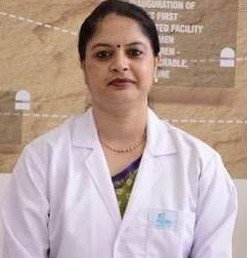
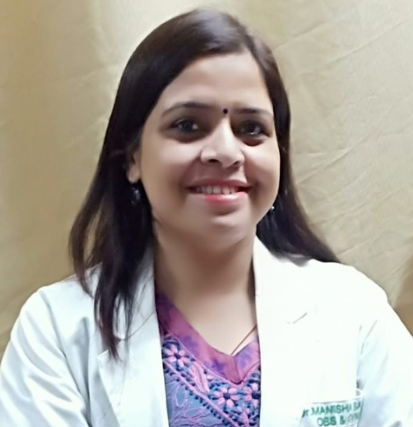


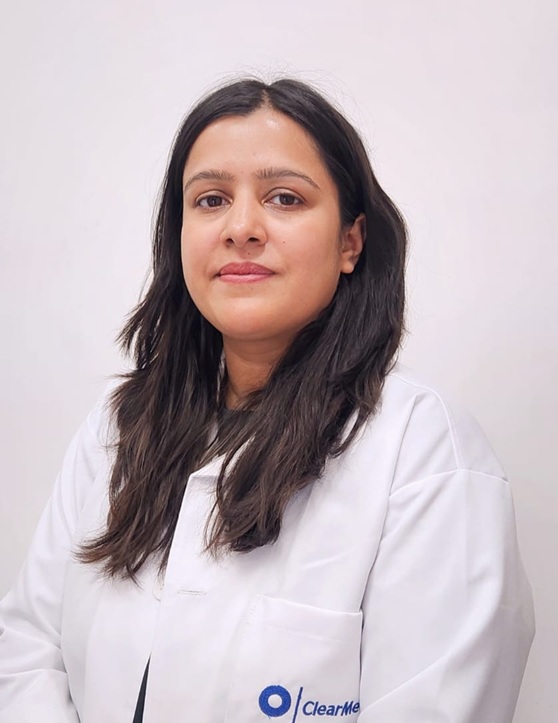

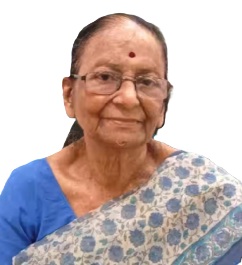





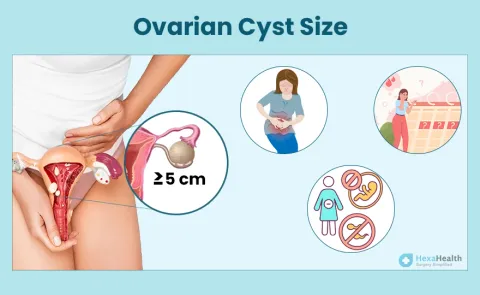
 Open In App
Open In App